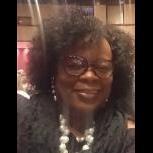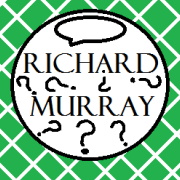-
Posts
3,840 -
Joined
-
Last visited
-
Days Won
119
richardmurray's Achievements
Single Status Update
See all updates by richardmurray
-

Why You Should Consider a University Press for Your Book
Updated: April 5, 2022
First Published: April 5, 2022 by Adam Rosen < https://www.janefriedman.com/author/adam-rosen/ >Today’s guest post is by Adam Rosen (@adammmmmrosen).
For many authors, there’s a certain template for book publishing “success”: signing with an agent, getting a decent advance, and watching the awards and social media followers roll in. Achieving this fantasy, as you no doubt know, is famously challenging—and arguably getting more so every year as Big Publishing continues to consolidate (to say nothing of recent employee turmoil).
While it’s an oversimplification to declare that the big houses stake too much on celebrity memoirs, former Trump staffer tell-alls, IPs, and other supposed sure bets, there’s more than a kernel of truth here. Platform and brand arguably matter now more than ever, especially when it comes to nonfiction.
Despair not, though. If you have a small platform and a big idea (and strong writing skills), there are other options. Enter the humble, often overlooked university press.
Within the past few years university presses have been publishing some of the most exciting, critically acclaimed trade books around. Last year, for instance, three out of the ten books longlisted for a National Book Award for Nonfiction were published by university presses. West Virginia University Press, which puts out 18 to 20 books a year and is the state of West Virginia’s only book publisher, has earned the sort of recognition and media attention you’d typically expect from a hip new indie press or house ten times its size. In 2020, Deesha Philyaw’s The Secret Lives of Church Ladies, a short story collection published by the four-person WVUP staff (now five), was named a finalist for the National Book Award for Fiction and earned a PEN/Faulkner Award, among several other prestigious accolades; last October it was announced that a TV adaptation of the book was in the works for HBO Max. The next month, Ghosts of New York by Jim Lewis, another West Virginia release, made the New York Times list of 100 Notable Books of 2021.
University presses have carved out a unique place in the trade publishing landscape, says Kristen Elias Rowley, editor in chief of Ohio State University Press, by providing an opportunity for “books that can’t find a home elsewhere.” This often translates to “projects that are either pushing boundaries in terms of form or content or voice. Projects that a larger press is going to say, ‘You know, we can’t sell 50,000 copies of this, so we’re not going to do it’ or ‘We don’t think this is mainstream enough.’” She points to two upcoming titles on OSUP’s catalog, cultural critic Negesti Kaudo’s collection of personal essays, Ripe (a Lit Hub Most Anticipated Book of 2022), and Finding Querencia: Essays from In-Between by Harrison Candelaria Fletcher, as examples. Both collections will be released through OSUP’s trade imprint, Mad Creek, this month.
Elias Rowley estimates that at least half of all university presses publish books by non-academics. While the core mandate of UPs is to advance scholarship through journals and scholarly monographs, they also have a mission to “put important literary or other general public or regional works out into the world,” she says. Of the 40 to 60 books a year OSUP publishes, roughly a dozen are trade books released through Mad Creek.
“It never seemed like the point was to be insular,” says Derek Krissoff, director of West Virginia University Press. “Part of the value proposition for [UPs] is building bridges that go out to other communities” beyond the confines of academia. In Krissoff’s view, this larger purpose gives university presses leeway to make decisions that are less commercially driven. “We’re very concerned about being thoughtful stewards of people’s resources, because we are part of the state of West Virginia. But we don’t have shareholders who need to be rewarded, and we can be a little bit freer in terms of what we choose to invest in,” says Krissoff. In light of WVU’s recent wave of success, this (winning) strategy feels more than a little ironic.
The backbone of many university presses’ trade programs is probably familiar: local and regional history, cookbooks, photography books, and other sorts of consumer-friendly titles with an obvious connection to the area or university. But many also offer a home for books that are niche, experimental, challenging in various ways, and/or just kind of weird.
I’d like to think of my own as an example of the latter. In February 2018 I put the finishing touches on my proposal: a collection of essays, from various contributors, on the cult film The Room, widely considered “the worst movie of all time” and a personal obsession of mine. My prototype was the Indiana University Press series The Year’s Work: Studies in Fan Culture and Cultural Theory, a heady series devoted to dissecting pop culture bric-a-brac. Its topics of focus ranged from the straightforward (The Worlds of John Wick) to the strange (Household Horror: Cinematic Fear and the Secret Life of Everyday Objects).
I discovered the series after coming across a 2009 entrant, The Year’s Work in Lebowski Studies, a deconstruction of, you guessed it, The Big Lebowski. The essay collection felt revelatory, offering enlightening historical and critical analysis that helped less-savvy viewers (such as myself) uncover the layers upon layers of meaning in the film, whether related to the Gulf War, the failures of the New Left, or the influence of literary critic Paul de Man on the Coen brothers (and, of course, nihilists and white Russians). It was often hilarious, but it took its subject matter seriously. For its efforts it snagged reviews in the New York Times and Washington Post.
A few of the agents I submitted my proposal to told me they liked my idea but the scope felt too narrow; one suggested I expand the focus to bad films in general. Alternatively, it was too academic. The bottom line was that they didn’t think they could sell it in its current form.
After several dozen rejections, I changed tacks and started submitting directly to university presses, who I knew were open to unsolicited queries and proposals. This time the feedback was more encouraging, but I still ran into the same problem, just from a different side: several editors said they liked my idea, but it felt too trade-y—they wouldn’t know how to sell it.
The sweet spot, it turned it out, was with an academic press with a strong trade arm who published on pop culture: Indiana University Press, i.e., the publisher who put out the very book I was meticulously, and possibly shamelessly, modeling my own book on. I ended up exactly where I began.
Initially I was a bit surprised that they’d have me. I have a BA in political science, and while as a freelance writer I’ve written about pop culture (including a piece on The Room), I don’t have a film beat. And yet, four years later, I’m the editor of and contributor to a collection of essays about a film, a book whose vast majority of contributors are academics. Another, related data point: an author whose book proposal and sample chapters I recently edited has received an encouraging amount of initial interest from her first-choice publisher, a university press in her geographic area, despite not having a bachelor’s. But she does have excellent research skills and deep professional expertise in a field related to the topic of her book, an iconic bridge.
All of which is to say that (a) university presses are not just for scholars; and (b) many are far more open-minded than you may think—as I once thought.
If you are interested in submitting to a university press, Elias Rowley and Krissoff have a few suggestions. Given the unique focus areas and track record of each press, any place you contact should be a good match for your topic. Proposing a book about birding in Maine probably isn’t a great fit for, say, University of Nevada Press. That said, “fit” can be expansive, thematic as much as geographic. “I think what our books have in common is that they are grounded in place,” says Krissoff. “And it doesn’t always mean they’re grounded in our place, although a lot of our books are about Appalachia or about Appalachian topics.”
While having a decent platform doesn’t hurt, says Krissoff, it’s not necessary; he says he doesn’t look for an author’s metrics when he’s reviewing a project. If he likes their idea, it’s much more important that the author is willing to truly commit to the writing, revising, and marketing processes. “Platform is always a bonus and can really make a difference in the outcome for a book, but it’s not going to be the thing that makes me decide not to do a project,” says Elias Rowley. “I’m not looking for a bare minimum of certain kinds of requirements. I’m looking for [if] this is a book that should be out there in the world.”
To that end, Elias Rowley says that it’s rarely too early to get on an editor’s radar. She advises authors to reach out and connect with editors early on, whether it’s through email or in-person events like the Association of Writers & Writing Programs (AWP) conference. She’ll even respond to queries that are submitted before the proposal’s been written. This way, if she likes an idea and thinks it might be a good fit, she can help develop it from the beginning. “We’re interested in forging those relationships and having it be a collaborative partnership,” she says.
The downsides? University presses typically don’t offer an advance, and if they do, it’s probably going to be pretty modest. That said, if your book sells well, you earn royalties immediately, since you don’t need to “earn out.” As Belt publisher Anne Trubek puts it, “Advances are royalties. They just come sooner.” It’s also expected that authors supply their own index, which means either using software to do a bad job or hiring someone to make one (what I did). I also gave each essay contributor an honorarium.
So when my book publishes this October, technically I’ll already be in the hole. Will I sell enough books to break even? Hard to say. I do think it could be a strong backlist contender. As I argue in my book, The Room has become The Rocky Horror Picture Show for the millennial generation. There are (or were, before Covid) monthly Saturday night screenings of it around the world, each replete with a set of established viewing rituals. The film’s notoriety continues to grow alongside that of its eccentric creator, Tommy Wiseau. But this may be wishful thinking.
On the other hand, I already consider my journey a success. Having a book title under my name with a well-respected university press has brought me a level of professional prestige, boosting my credibility as freelance book editor and opening doors for various writing projects. I also have the satisfaction of having taken the germ of an idea, turned it into a proposal, wrangled together 16 smart (and, blessedly, easy to work with) contributors, and executed the entire thing into the form of a book I will eventually hold in my hands. And, certainly last but not least, I’d like to think I’ve played a small part in furthering the world’s knowledge of the worst movie of all time, which surely counts for something.
It’s not the typical publishing success template, much less a show on HBO Max. But it just may be good enough.
IN AMENDMENT
Why Your Amazing Writing Group Might Be Failing You
https://www.janefriedman.com/why-your-amazing-writing-group-might-be-failing-you/








.thumb.jpg.ed52910791d00308abb8c218695bec88.jpg)


